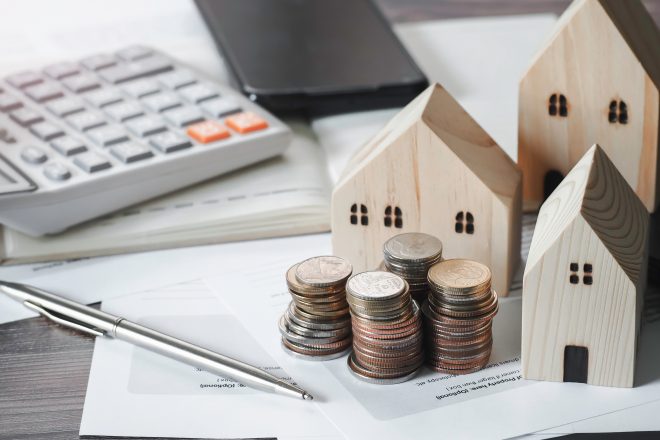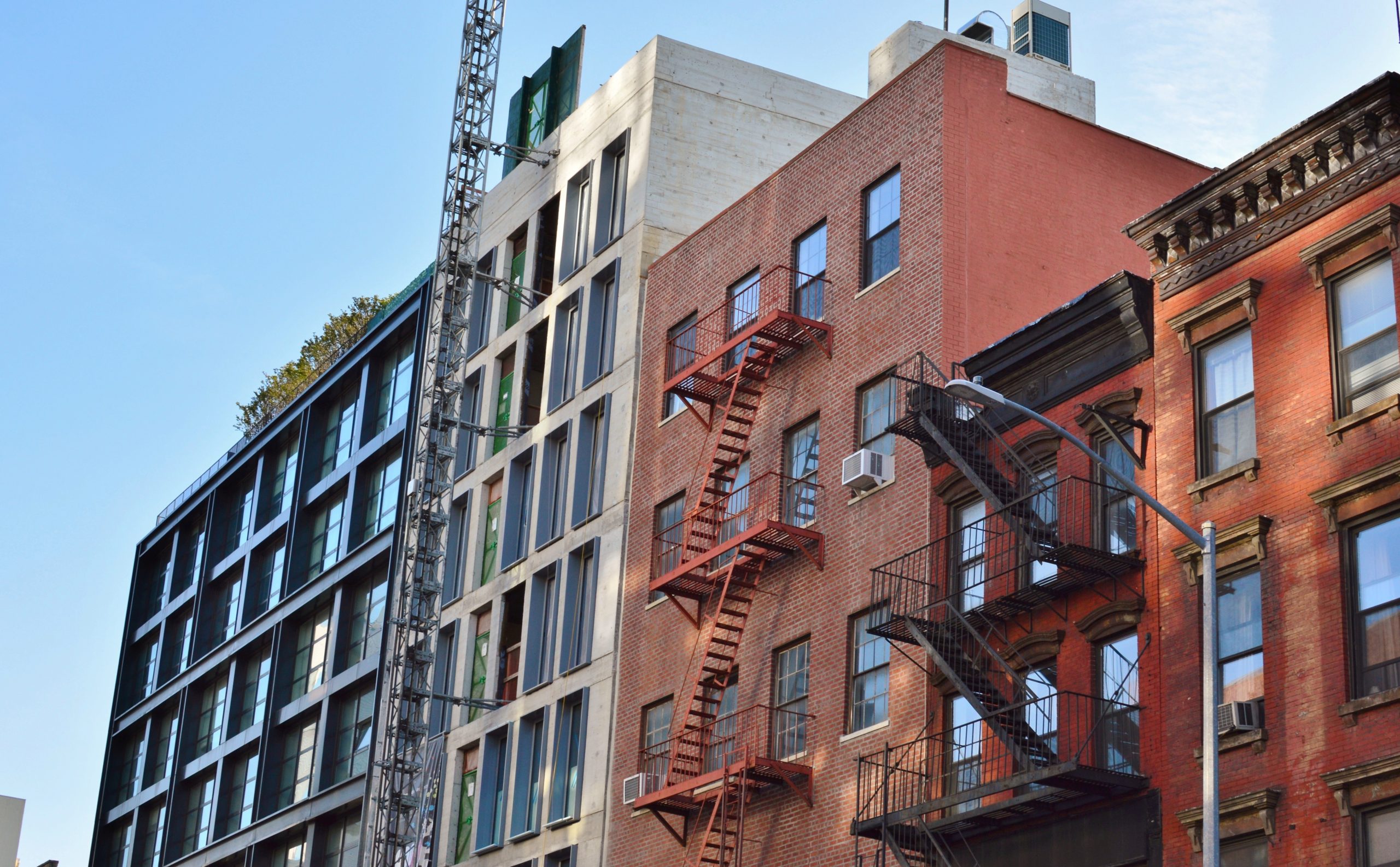How NYC Property Taxes Are Calculated

If you are planning to buy a home in New York City, then there are no doubt a lot of factors you are considering and balancing. What neighborhood is best? Should you go with a co-op, or a condo? While you sort through all of these exciting options, try to not forget about the slightly less exciting aspects of home buying in the city: NYC real estate taxes.
On this page, we will walk you through everything you need to know about how NYC property taxes are calculated, and how you should factor these taxes into your budget as you search for your dream home.
Table of Contents
Calculating NYC Property Tax: How Much Do You Pay?
A combination of factors determines the amount you pay in NYC property taxes:
- Your home’s value
- Your home’s “class”
- Exemptions or abatements
To figure out how much property tax you will owe for your new NYC home, you will need to take all of these elements into consideration. In the following sections, we will help you understand each of these points and what it means for your closing costs.
Your Home’s Worth–Assessed Value vs. Market Value

According to the New York Department of Taxation and Finance, the amount of property taxes you will owe for your new home will depend on its assessed value–which is impacted by its market value. So, what’s the difference?
Market Value
The market value of any real property (aka, your new home) is how much the property would go for on the market. Under normal circumstances, how much does your home sell for? New York’s Department of Finance will evaluate your home using a statistical analysis of the going prices for similar homes in your neighborhood. This will generate a number: your home’s market value.
Market value is pretty straightforward, since it corresponds with the real world money that your home is worth. But of course, nothing about taxes is ever that straightforward. You are not taxed on the market value of your home, but on its assessed value. So, what is assessed value?
Assessed Value
Also known as the “taxable value,” the assessed value is a percentage of your home’s market value. The exact percentage depends on which “class” your home belongs in. We’ll talk about this in more detail later, but for now, just know that most NYC homes are either Class 1 or Class 2 buildings. The assessed value for Class 1 homes is set at 6% of market value, and for Class 2 homes, it’s 45%.
Even though this percentage is fixed, your home’s assessed value–and therefore the amount of property taxes you have to pay–isn’t set in stone. It can go up based on the rising market values of surrounding homes, the loss of any exemptions or abatements you have, and any renovations or additions you make to the property. You can check your home’s assessed value on New York’s tax website or NYC’s Department of Finance website.
Your Home’s Class–Class 1 vs. Class 2

Your real estate tax rate will depend on what “class” your building is. Classes are designations decided by the City of New York, and you can find the list on their website here. Different classes of homes have different tax rates.
Class 1
Class 1 buildings are homes with at most 4 units. So if you are buying a house or a duplex, a brownstone, or a single unit in a condo, then you may be buying a Class 1 home.
The New York City Council sets the property tax rate each year. It is applied to the assessed value of your home to come up with the amount of taxes owed before abatements. For a Class 1 home in NYC, the tax rate is 21.045%.
The assessed value of your class 1 home cannot go up by more than 6% per year or 20% over five years. The assessed value can go up if you do renovations that raise the value of your property. It can also rise from losing a tax exemption that lowered the amount of taxes you had to pay.
Class 2
Multi Family homes with more than 4 units–so many apartment buildings, co-ops, and new developments in NYC–are considered “class 2” buildings. The real estate tax rate for a class 2 building is 12.267%. Developers and owners of these large properties have to pay this rate on the assessed value of their property. Unless you are planning to buy more than 4 apartments in a development, class 2 tax policy will likely not apply to you.
You may have noticed that the class 2 building’s tax rate is significantly lower than that of class 1. However, since class 2 buildings are assessed at 45% of their market value compared to class 1’s 6%, the amount of taxes they pay before abatements is ultimately higher than those paid by single families.
Tax Abatements and Exemptions

One of the main ways you can lower your NYC real estate tax burden is through obtaining abatements and exemptions. In this section, we will walk you through the differences between exemptions and abatements. We’ll also cover the available ones for NYC home buyers and the way you can go about applying for them.
NYC Property Tax Exemptions
Exemptions lower the assessed value of your home, which in turn lowers the amount of taxes you have to pay. Some of the more common exemptions are as follows:
- Clergy Exemption: qualifying current and retired members of the clergy can receive a $1,500 reduction to their home’s assessed value. If the clergy member has passed, their currently unmarried surviving spouses can also receive this exemption.
- Disabled Crime Victim/Good Samaritan Exemption: If you or a member of your household was injured in a crime, in the prevention of a crime, or in the apprehension of a criminal, then any additions made to the home to accommodate resulting disabilities cannot add to the assessed value.
- Disabled Homeowners Exemption (DHE): this tax break goes to disabled New Yorkers living in Class 1 homes. Approval for this exemption requires proof of disability, income, residency, and ownership. The amount of reduction depends on your total household income.
- Veteran’s Exemption: if you or another member of your household served in any branch of the United States Armed Forces, then you may be able to receive the veteran’s exemption. Qualifying vets, gold star parents, and surviving spouses are all eligible for this tax break.
NYC Property Tax Abatements
Abatements are credits that can be applied to the amount of taxes you owe. These are typically the last factor applied to the amount of taxes you owe before you have to pay. That means that the abatements will simply lower the final number. But they won’t impact your home’s assessed value, class, or tax rate.
Some popular abatements are as follows:
- Cooperative and Condominium Property Tax Abatement: this can reduce your tax bill if you own a unit in a co-op or a condominium. The percentage of this reduction will depend on the total assessed value of your home.
- Green Roof Abatement: a one time tax abatement calculated based on the square footage of green roof space. Green roofs (covered with grass or vegetation) help the city by absorbing water and fighting the heat-island effect.
- Solar Roof (SEGS) Abatement: much like the green roof abatement, this tax benefit is for New York homeowners who are willing to make eco-friendly improvements to their roofs. Unlike the green roof abatement, it is not a one-time deal. You will receive this benefit for four years from the time you install the solar panels.
- Major Capital Improvement (MCI) Abatement: this one year abatement is available for properties that undergo a “major capital improvement,” such as renovations or other property upgrades. This can help to temporarily offset a raised assessed value due to these improvements. Repairs, however, are not considered major capital improvements.
You can find more details on available property tax exemptions and abatements on the NYC Department of Finance’s website. This link will also help you find the right ways to apply for exemptions and abatements. It also provides updates on any delays or exemptions to receiving your benefits. There are typically deadlines for applying for these tax breaks, so be sure to stay on top of it to reduce your tax burden in the coming year.
Calculating Your NYC Property Taxes

Determine your home’s worth, your mortgage, and the amount of mortgage you can afford today!
- Categories:




